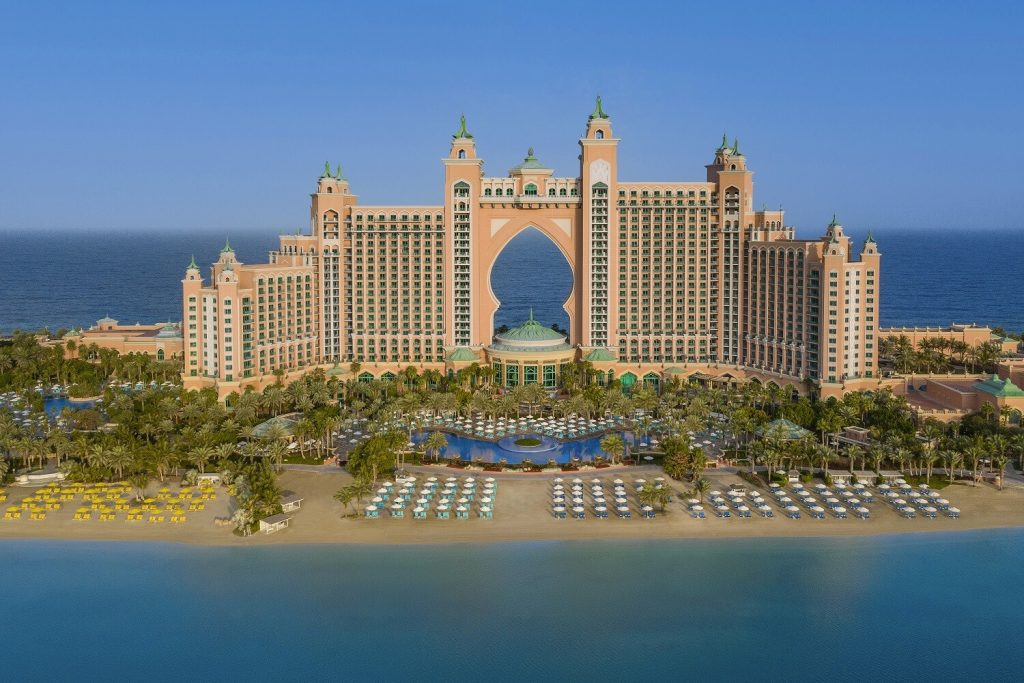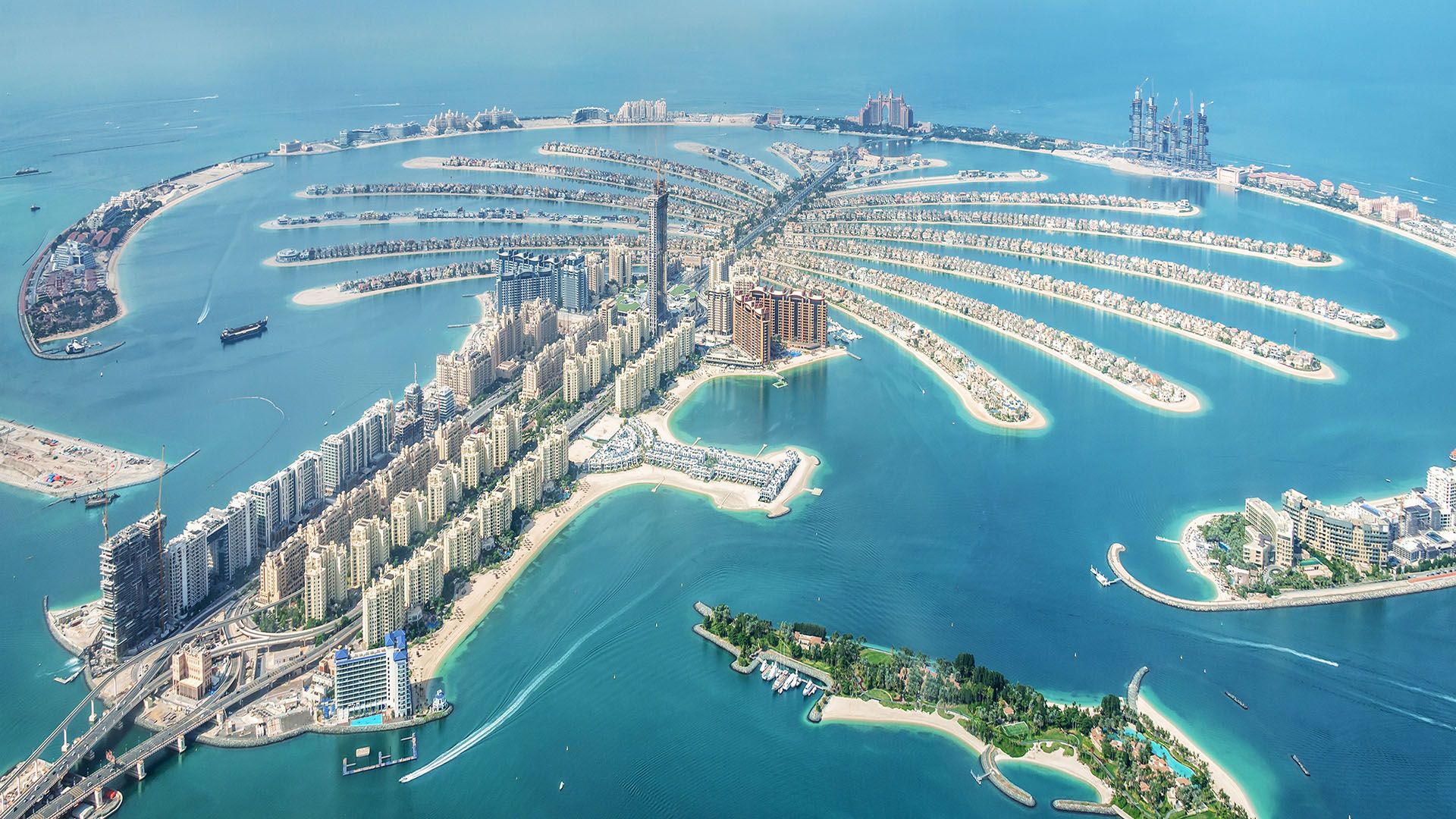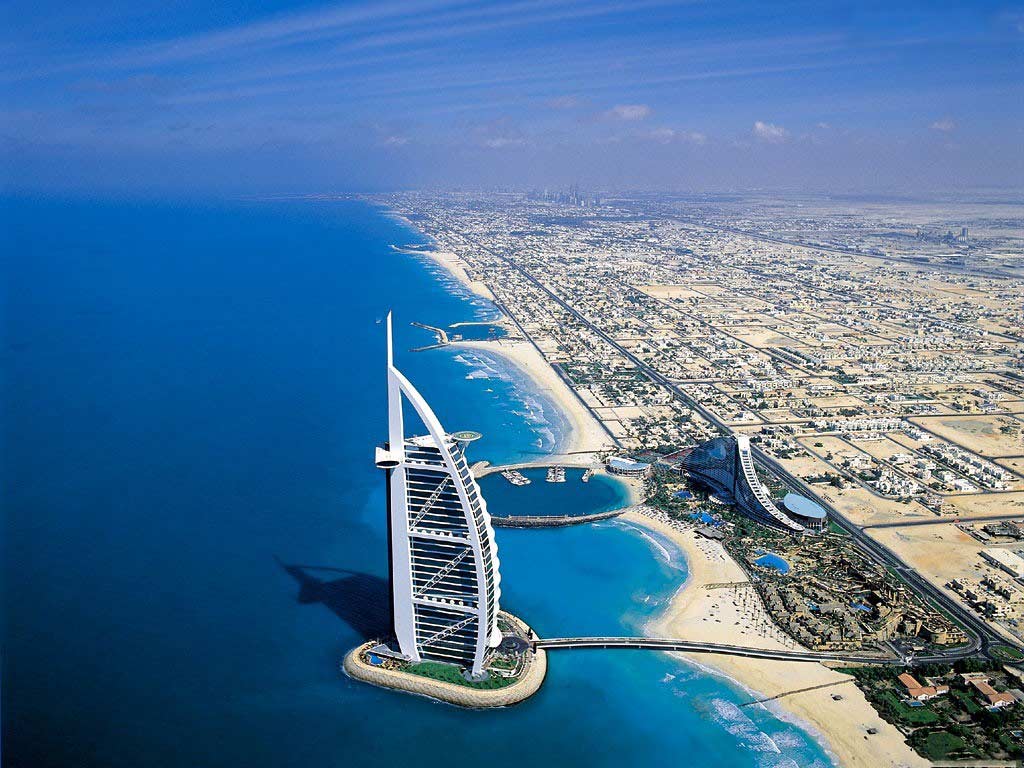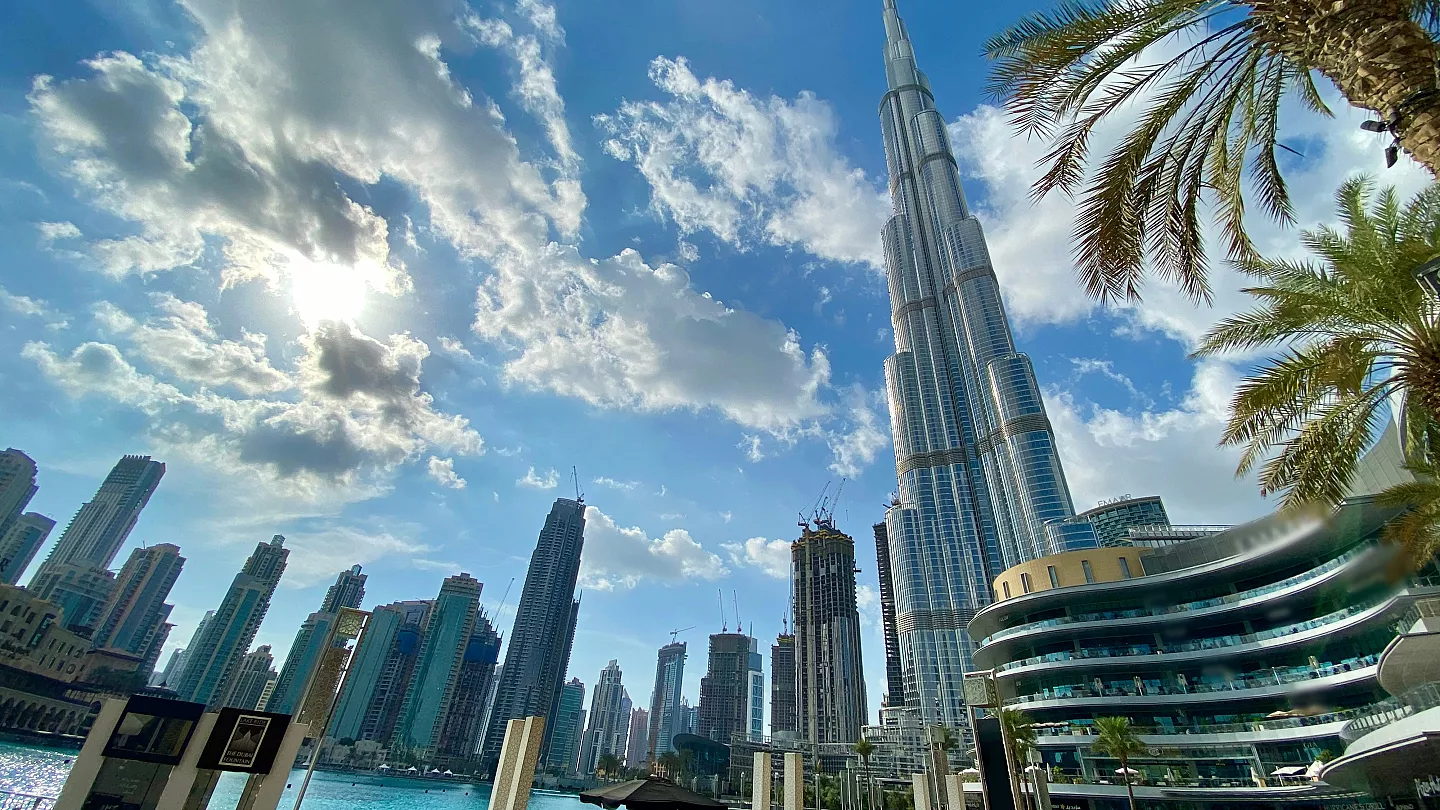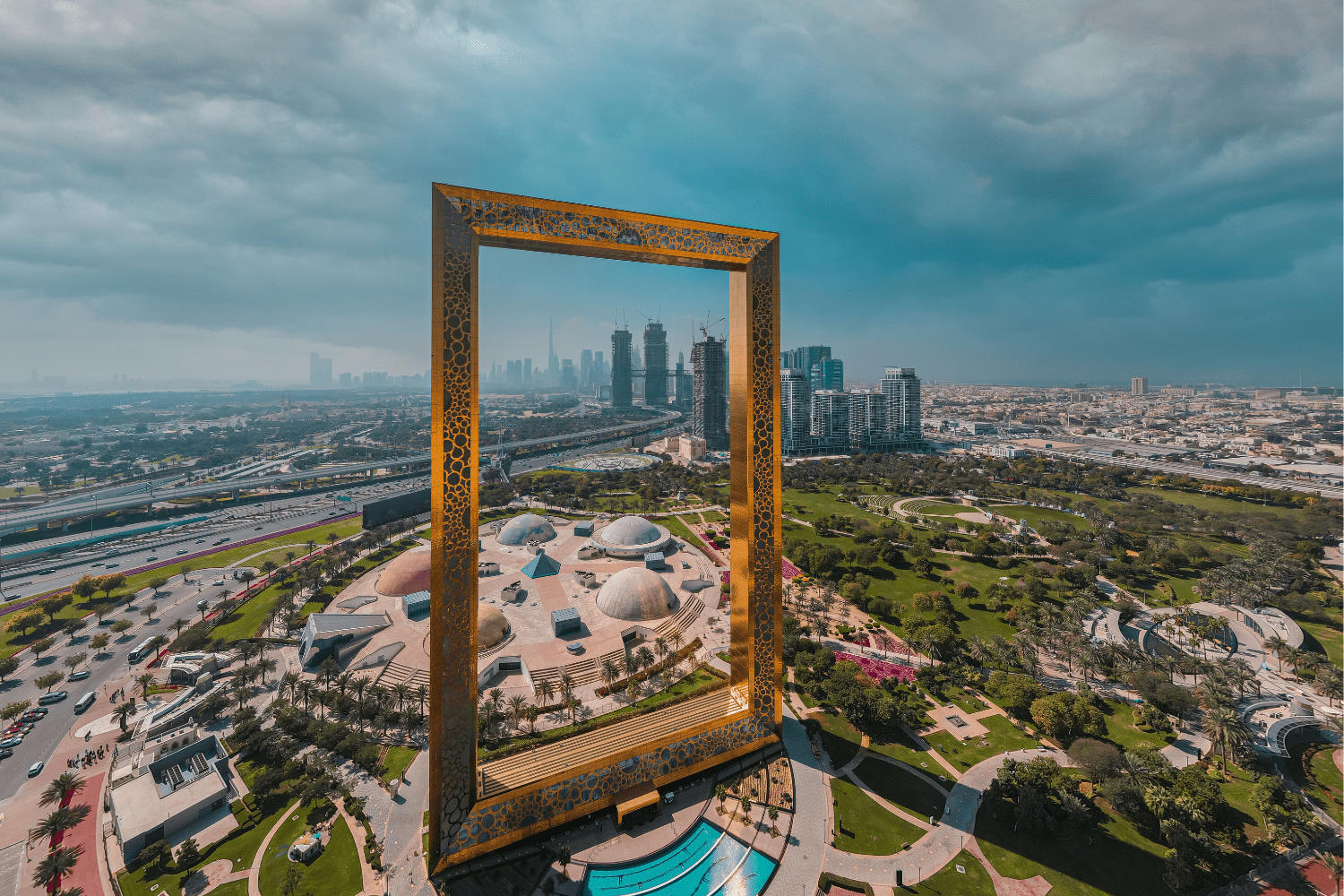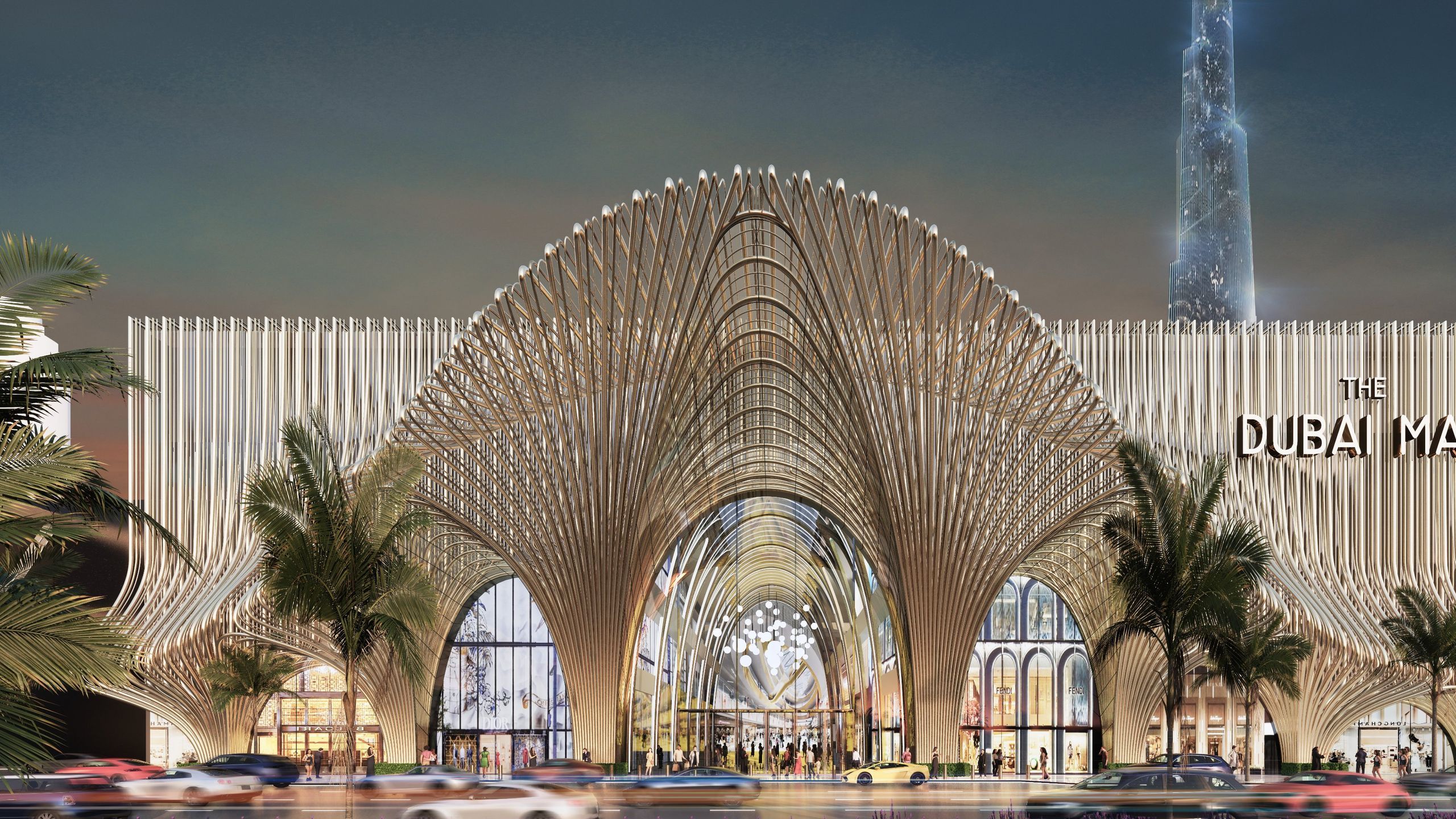Whether working remotely from Dubai, permanently moving your business, or coming for retirement, there are lots of options for you to enjoy the full benefits of being a Dubai resident.
Thinking of relocating to Dubai? The Middle East is thriving with a strong job market, and skilled professionals are in high demand, especially in finance, technology, and HR. With VAT implementation and digital transformation, opportunities continue to grow. Dubai offers tax-free income and a multicultural lifestyle, with roles available in various industries, from multinational corporations to local businesses.
Want to mix business with pleasure in Dubai? With the new one-year virtual working program, you can enjoy working remotely while living by the beach.
Residency for investors and entrepreneurs
If you're looking to open a business or invest in property in Dubai, you can apply for five- or ten-year residency visas, with the option to bring your business partners and family along.
Residency for specialist talent
If you're a specialist in science, medicine, sport, culture, or art, Dubai provides growing opportunities and cutting-edge facilities to develop your talent. Apply for this ten-year visa and unlock your potential.
Residency for outstanding students
Dubai's state-of-the-art research and facilities draw top talent from across the globe. Discover the five and ten-year visas designed to support exceptional student talent.
Residency for retirees
Start your next chapter and enjoy the freedom of living in one of the world's most connected, dynamic, and safest cities with Dubai's Golden Retirement Visa.
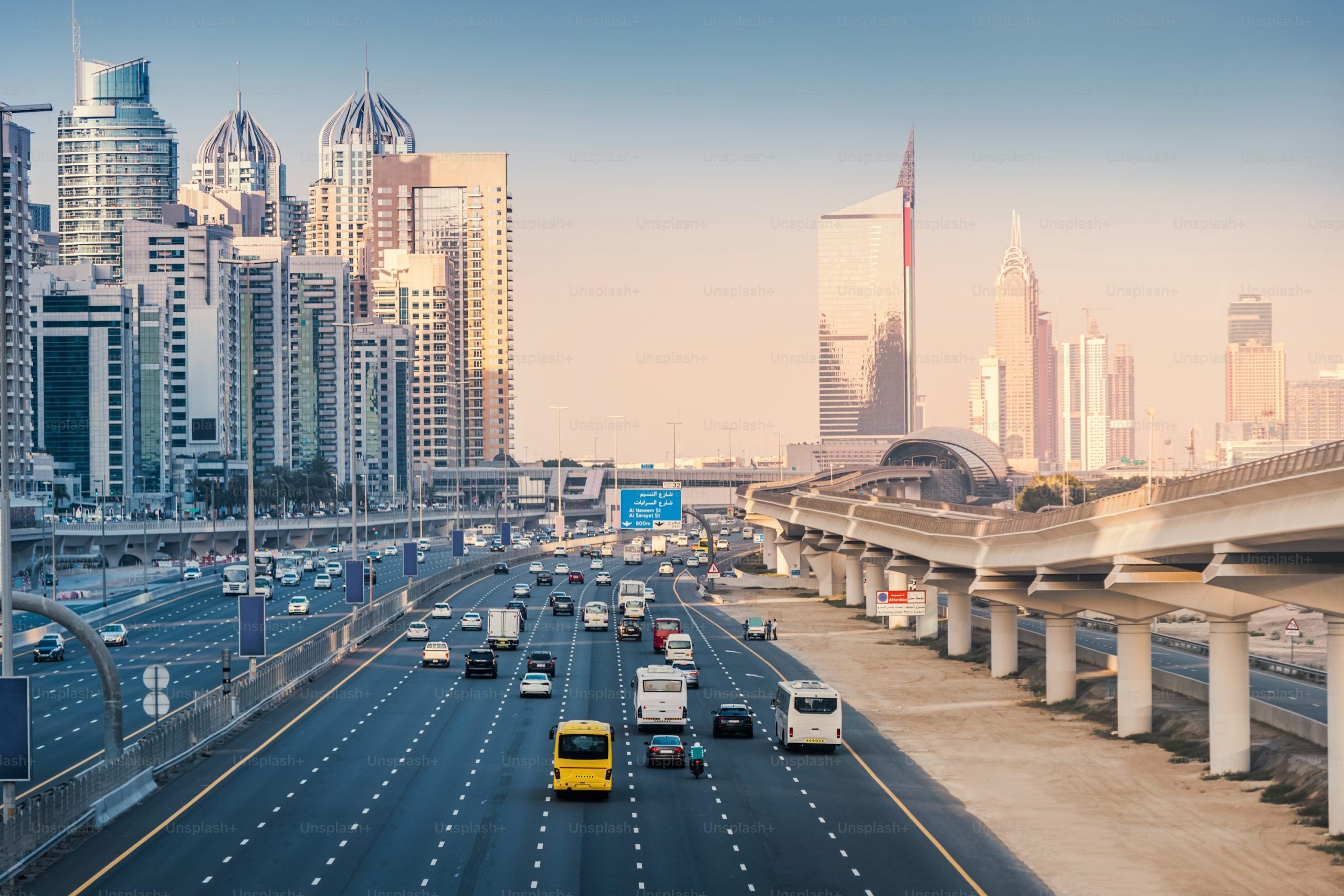
FAQs about UAE and Dubai Visas
Do I need a visa to enter Dubai?
Whether you need a visa depends on your country of citizenship. Most passport holders are eligible for a visa on arrival at no cost, while others may need to apply for a visa in advance. Select your nationality from the dropdown above to check the specific visa requirements.
How do I apply for a Dubai tourist visa?
If you need a visa to enter the UAE, you can apply through approved airlines, hotels, travel agencies, or tour operators. Alternatively, you can be sponsored by a UAE resident or company.
How long can I stay in the UAE?
The duration of your stay in the UAE depends on your visa type, ranging from 14 days up to 180 days. Select your country of citizenship from the dropdown menu above to get more specific details on your.
What is the validity period of my visa?
All visas are valid for 60 days from the date of issue until entry to the UAE, except for the 48-hour and 96-hour Transit Visas, which are valid for 30 days.
What nationalities are entitled to a visa on arrival in Dubai?
Citizens of more than 50 countries do not require a pre-arranged visa to enter Dubai.
What should I check before travelling to Dubai?
Please ensure that your passport is valid for at least six months at the time of entry. Depending on your nationality, you may also require a prearranged visa.
Can I get visa on arrival in Dubai, or do I need to apply in advance?
Some nationalities can obtain a visa on arrival in Dubai (refer to the GDRFA website for the full list), including Indian nationals with residency visas from the USA, UK, or EU countries, or a visit visa from the USA. Other nationalities will need to apply for a visa in advance before their trip.
Can I stay in Dubai without a visa?
No, you will need to extend your tourist visa or entry permit if you wish to stay longer in Dubai. Overstaying your visa, even by a few days, will result in fines. For details on how to extend your tourist visa, please visit the official website.
Do I need a transit visa for 2-8 hours in Dubai?
No, you do not need a transit visa for a layover of 2 to 8 hours in Dubai. During this time, you can enjoy the multiple lounges and restaurants available at the airports while waiting for your connecting flight. A transit visa is only required if your layover is more than 8 hours and less than 96 hours.
Do Schengen visa holders require a visa for Dubai?
Schengen region passport holders do not require a visa for Dubai. However, individuals with a Schengen visa will need to check their eligibility based on their nationality. For example, Indian nationals holding a Schengen residence visa are eligible for a visa on arrival in Dubai. It is important to verify the specific visa requirements for your nationality before traveling.

Dubai Will Soon Be Home to the Middle East's First Rain Forest
22 Things to Know Before Moving to Dubai
From a humble fishing village to becoming one of the Middle East’s most prosperous cities, Dubai has undergone an incredible transformation. Whether you're considering a lavish lifestyle under the sun or a fresh start in a booming city, here are some essential things you should know before moving to Dubai.
-
You Can Meet People from All Over the World
While most major cities are known for being tourist-friendly, Dubai’s expat community takes it to another level. Around 85% of the population consists of expats, making it an ideal place for those looking to start over and make friends from across the globe.
-
Ditch the Phrase “TGIF”
Dubai follows a different workweek schedule. Rather than having your weekend on Saturday and Sunday, your break will begin on Friday and end on Saturday. Friday is considered a holy day in Islam, so work stops for the day. You’ll get used to the shift after a few weeks.
-
English is Widely Spoken
Don't worry if you're not fluent in Arabic. English is widely spoken across Dubai, which makes it easier to navigate the city. However, many residents do learn some Arabic over time. For instance, when you hear “yalla, yalla, yalla!” behind you on the street, it means “hurry up!”
-
The Cost of Living is Expensive
Living in Dubai can be costly, with expenses nearly 100% higher than the national average in the UAE. Rent prices, especially in popular expat areas, have risen dramatically in recent years. Currently, the average house price sits at £598,705 ($760,000). While it might be a shock to some, it could be a pleasant surprise for those moving from cities like London or New York.
-
It’s Ladies Night Every Night
What started as a Tuesday tradition has turned into a nightly occurrence. “Ladies night” deals, offering free drinks, discounted meals, and even complimentary pool access or mini-spa treatments, are now widespread across Dubai. Gents are welcome, but they’ll be paying the full price.
-
There Are Women-Only Areas
Dubai is often considered one of the best places for women in the Middle East. The city is extremely safe and offers several women-only spaces, including separate metro carriages and taxis. Some beaches even hold exclusive days for women. These facilities are optional and cater to those seeking privacy.
-
Dubai is Very Safe
One of the safest cities in the world, Dubai frequently ranks among the top 30 safest places to live. Strict laws, publicized convictions, undercover police, and long prison sentences all contribute to its low crime rate. It's not uncommon to see luxury cars parked with keys left in the ignition, or a laptop unattended for half an hour with no worry.
-
You’ll Need Medical Insurance
Unlike the UK, accessing healthcare as an expat in Dubai can be challenging. For peace of mind, it’s wise to get comprehensive medical insurance to cover any emergencies or ongoing health concerns. If you’re moving for work, check with your employer, as they may offer coverage.
-
It’s Important to Follow the Rules
Dubai is strict about its laws, and violations can lead to serious consequences. Here are a few important rules to know:
- Taking a photo of someone without consent can lead to fines or jail time. A famous example is Jodi Magi, an Australian teacher, who was jailed, fined 10,000 dirhams (£2,157), and deported for posting a photo of a vehicle parked across two disabled spaces.
- Possessing poppy seeds, used to create opium, is illegal and can land you in jail.
- Eating or drinking on public transport, from metros to pedestrian crossings, is prohibited and can result in fines.
- Swearing in public can lead to up to a year in prison and a fine of up to 10,000 dirhams (£2,157). Flashing the middle finger may even get you deported.
-
Prepare for the Heat
Dubai’s climate is significantly hotter than the UK. With summer temperatures averaging 40°C and humidity levels often exceeding 90%, it can be unbearable for some. Even during the cooler months (December to March), temperatures rarely dip below the low 20s.
-
Ramadan and Islamic Holidays
In Dubai, Islamic holidays dictate work schedules. During Ramadan, working hours are shortened to six hours a day, and many choose to take time off. If you're unfamiliar with Ramadan, be aware that eating or drinking in public during daylight hours is prohibited. Be mindful that Ramadan’s dates change each year.
-
It’s a City of Innovation
Dubai has undergone an intense technological transformation, particularly since the 2013 Smart Dubai initiative. The city is focusing on becoming paperless, developing AI technology, supporting startups, and aiming to become the happiest city globally. As part of the UAE, Dubai also benefits from being in one of the world’s top 35 most innovative countries.
-
There’s No Escaping the Traffic
With constant construction and nearly everyone owning a car, traffic is a significant issue. Morning commutes can turn a 20-minute drive into an hour-long journey. Expats will quickly need to find ways to avoid rush hour congestion.
-
Public Transport Is Pristine
Public transportation in Dubai is efficient and affordable. The Metro is the most popular choice, with each ride costing just 3.5 AED (68p). Taxis are also relatively cheap, with a starting fare of 12 AED (£2.33). Dubai’s Smart Taxi App makes hailing a ride easy, without having to flag down a driver.
-
Brunch is a Must Every Weekend
A beloved tradition in Dubai, brunch has evolved from a simple meal to an extravagant affair. Expect all-you-can-eat feasts, often with unlimited drinks, no matter the time of day. It’s a popular weekend activity for locals and tourists alike.
-
The Almost Tax-Free Lifestyle
One of the biggest draws to living in Dubai is the lack of taxes. There are no income taxes, capital gains taxes, or property taxes. However, there are some taxes, such as import duties on goods and rental taxes, which are important to be aware of.
-
Your Work Has a Lot to Do with Your Private Life
As an expat, many of your official matters, including your bank account, will need to be handled through your employer. Your employer is often your sponsor, making them the primary point of contact. You’ll also need a letter of no objection from your employer to open a bank account in Dubai.
-
Education is Excellent
Dubai offers high-quality education, particularly for families moving with children. International schools, including those following the British education system, are plentiful. If you're from the UK, settling your kids in a local school will be easy due to the familiar curriculum.
-
It’s a Birdwatcher’s Paradise
While Dubai is known for its man-made marvels, nature also has its place. Over 320 species of birds migrate through the city, especially during spring and autumn. Birdwatchers can spot a variety of wildlife, including eagles, broad-billed sandpipers, and greater herons.
-
Dubai Uses Robots as Jockeys
Camel racing is a popular sport in Dubai, but it has a dark history of using trafficked children as jockeys. To address this, Dubai has replaced children with child-sized robots that cost between $300 and $10,000.
-
You Need a License to Drink Alcohol
In Dubai, if you want to drink, store, or transport alcohol, you need a special license. This includes drinking at home or a friend’s house. To get a license, you’ll need to provide a copy of your passport, visa, passport photo, and Emirates ID. Even with a license, consuming alcohol in public or being drunk in public can lead to hefty fines or even jail time.
- The hotels in Dubai are out of this world
Dubai is renowned for its extraordinary selection of luxury resorts and stylish five-star hotels, making it a top destination for those seeking the highest level of comfort and sophistication. The city boasts not only the world’s tallest hotel but also a variety of other record-breaking feats in the hospitality industry, showcasing the epitome of extravagance and world-class service. Whether you're looking for a lavish stay in a sky-high tower or a beachside oasis, Dubai's luxury hotels offer an unparalleled experience designed to impress even the most discerning guests. For first-time visitors to Dubai, Downtown Dubai is often considered the ideal area to stay. Its central location provides convenient access to some of the city's most iconic landmarks, including the Burj Khalifa, Dubai Mall, and the Dubai Fountain. With a vast selection of dining, shopping, and entertainment options, Downtown Dubai offers the perfect blend of modern luxury and cultural attractions, making it an excellent base for exploring everything this vibrant city has to offer.

Visiting Dubai For the First Time - Top Tip
Always be mindful of local customs and etiquette. Dubai is a cosmopolitan city, but it still holds strong cultural values. Dress modestly in public places, especially in areas like shopping malls, and avoid public displays of affection. Additionally, be aware of the laws around alcohol consumption, public behavior, and photography. Respecting these customs will ensure a smooth and enjoyable experience while you're there!
Visa Service Providers for the UAE and Dubai
There are plenty of reputable visa and immigration services online to assist you with your trip to Dubai and the UAE.
When seeking Dubai visa and immigration services, it’s important to choose a reliable provider. Look for expertise in visa processing, including tourist visas, work permits, and residence visas. Services should cover essential needs like Emirates ID processing, visa sponsorship, and visa extensions. A trusted service provider will also assist with medical fitness tests, document attestation, and visa status checks. Additionally, ensure they offer business visa solutions, family visa options, and entry permits. Whether for a Dubai visit visa or residency permit, a professional can ensure a smooth immigration experience with accurate legal support.



